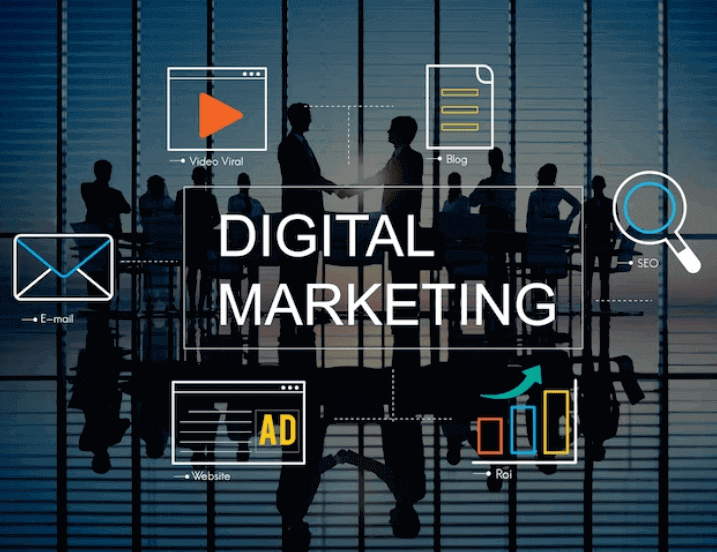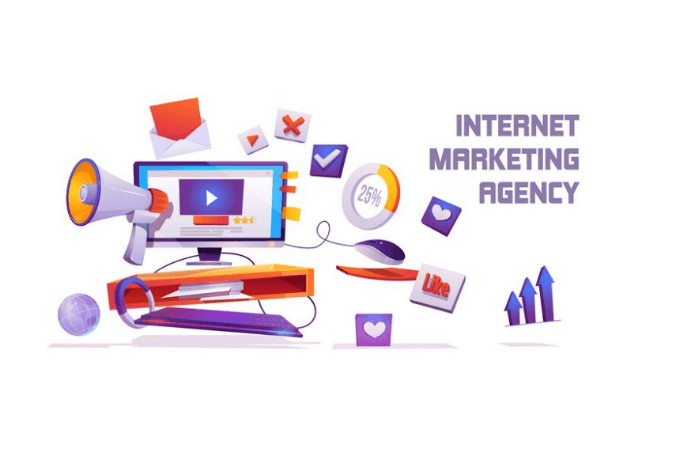
Digitalni Marketing: What is it Actually?
In the fast-paced world of business, the term “Digitalni Marketing” has become increasingly prominent. This comprehensive guide aims to demystify the concept, exploring its evolution, core components, benefits, strategies, challenges, and future trends. Let’s delve into the world of digital marketing and understand what makes it an indispensable tool in the modern business arsenal.
Introduction
Definition of Digitalni Marketing
Digitalni Marketing, often referred to as digital marketing, encompasses a range of online strategies and channels to promote products or services. It involves leveraging digital platforms to connect with target audiences, drive engagement, and ultimately achieve business goals.
Importance in the Modern Business Landscape
In today’s digital world, digital marketing is critical. As consumers increasingly turn to online channels for information and shopping, businesses must adapt and establish a robust online presence to remain competitive.
Evolution of Digital Marketing
Historical Overview
The roots of digital marketing can be traced back to the early days of the internet, where basic websites and email campaigns marked the beginning of online promotion. Over the years, the landscape has evolved significantly, incorporating diverse strategies and technologies.
Key Milestones in Digital Marketing
From the advent of search engines to the rise of social media, digital marketing has witnessed transformative milestones. The development of analytics tools and artificial intelligence has further revolutionized how businesses connect with their audience.
Core Components of Digitalni Marketing
Search Engine Optimization (SEO)
SEO plays a pivotal role in digital marketing, ensuring that websites rank high on search engine results pages. Optimizing content and using relevant keywords enhance visibility and drive organic traffic.
Social Media Marketing
The power of social media cannot be ignored in the digital landscape. Platforms like Facebook, Instagram, and Twitter provide opportunities for businesses to engage with their audience, build brand awareness, and drive conversions.
Email Marketing
Email marketing is still an effective method for reaching out to your audience directly, even with the emergence of fresh media. Crafting compelling email campaigns helps businesses nurture leads and maintain customer relationships.
Content Marketing
Quality content is the cornerstone of digital marketing success. Creating valuable, relevant, and shareable content not only attracts and retains customers but also contributes to SEO efforts.
Benefits of Digital Marketing
Increased Reach and Visibility
Digital marketing enables companies to access a worldwide audience by overcoming geographic limitations. Online campaigns can significantly increase brand visibility, leading to broader market penetration.
Targeted Audience Engagement
Unlike traditional marketing, digital strategies enable precise targeting. Companies can target particular groups with their messaging to increase engagement and conversion rates.
Cost-Effectiveness
Digital marketing frequently turns out to be more economical than conventional techniques. Small businesses can allocate budgets efficiently, choosing channels that offer the best return on investment.
Digital Marketing Strategies
Developing a Comprehensive Plan
A successful digital marketing strategy involves a holistic approach, considering various channels and aligning them with business objectives. It includes defining target audiences, setting measurable goals, and outlining key performance indicators.
Utilizing Analytics for Optimization
Data-driven decision-making is integral to digital marketing success. Analytics tools provide valuable insights into user behavior, helping businesses refine their strategies for better performance.
Challenges in Digitalni Marketing
Rapid Technological Changes
The dynamic nature of digital technologies poses a challenge for marketers. Staying abreast of the latest trends and innovations is crucial to maintaining a competitive edge.
Information Overload
With the abundance of online content, capturing audience attention becomes challenging. Crafting compelling and unique content is essential to cut through the noise and resonate with the target audience.
Adapting to Consumer Behavior
Understanding and adapting to shifting consumer behavior is an ongoing challenge. Marketers must stay attuned to evolving preferences and tailor their strategies accordingly.
Future Trends in Digital Marketing
Artificial Intelligence and Machine Learning
The integration of AI and machine learning is set to revolutionize digital marketing. From personalized recommendations to chatbots, these technologies enhance user experience and streamline marketing processes.
Personalization and User Experience
Consumers expect personalized interactions. Future digital marketing trends emphasize delivering customized content and experiences, fostering stronger connections between brands and their audience.
Emerging Platforms and Technologies
As new platforms and technologies emerge, marketers must explore innovative ways to engage their audience. Virtual reality, augmented reality, and interactive content are poised to play a more significant role in the digital marketing landscape.
Digital Marketing for Small Businesses
Tailoring Strategies for Limited Budgets
Small businesses often operate with constrained budgets. Digital marketing offers scalable and cost-effective solutions, allowing them to compete with larger counterparts on a level playing field.
Localized Marketing Approaches
For small businesses with a local focus, targeted digital marketing strategies can boost visibility within the community. Local SEO, community engagement, and geo-targeted advertising are essential components.
Digital Marketing Ethics
Privacy Concerns
The collection and use of consumer data raise ethical considerations. Marketers must prioritize user privacy, transparently communicate data usage policies, and comply with regulations to build trust.
Transparency and Accountability
Ethical digital marketing practices involve transparency in advertising and accountability for the impact of campaigns. Businesses that prioritize integrity foster stronger connections with their audience.
Importance of Data in Digitalni Marketing
Data-Driven Decision Making
Data serves as the backbone of digital marketing strategies. Analyzing user behavior, preferences, and engagement metrics allows businesses to make informed decisions and optimize their campaigns.
Analytics Tools and Insights
Utilizing analytics tools such as Google Analytics provides actionable insights. Marketers can track website traffic, monitor campaign performance, and adjust strategies based on real-time data.
Training and Skill Development in Digital Marketing
Continuous Learning in a Dynamic Field
Given the ever-evolving nature of digital marketing, professionals must prioritize continuous learning. Staying updated on industry trends, tools, and techniques is essential for career growth.
Industry-Recognized Certifications
Acquiring certifications in digital marketing enhances credibility and opens doors to new opportunities. Recognized certifications validate expertise and demonstrate a commitment to staying current in the field.
Conclusion
In conclusion, digital marketing is a multifaceted strategy that continues to shape the way businesses connect with their audience. Embracing its dynamic nature and staying informed about emerging trends are key to sustained success in the digital landscape.
The future of digital marketing holds exciting possibilities as technology advances and consumer behavior evolves. Adapting to these changes will be paramount for businesses seeking to stay ahead in a competitive market.
FAQs
What is the primary goal of digital marketing?
The primary goal is to leverage digital channels to reach, engage, and convert target audiences, ultimately driving business growth.
How can the small businesses compete others in digital space?
Small businesses can compete by focusing on targeted, cost-effective strategies, such as local SEO, community engagement, and personalized content.
Are there ethical concerns in digital marketing?
Yes, ethical concerns include privacy issues, transparent advertising, and accountability for the impact of marketing campaigns.
What role does data play in shaping digital strategies?
Data is integral, facilitating data-driven decision-making, campaign optimization, and insights into user behavior.
How can one stay updated in the ever-changing digital landscape?
Staying updated involves continuous learning, monitoring industry trends, and obtaining industry-recognized certifications.
Visit our website for more. Click here: “Quick Trend Insights“.





